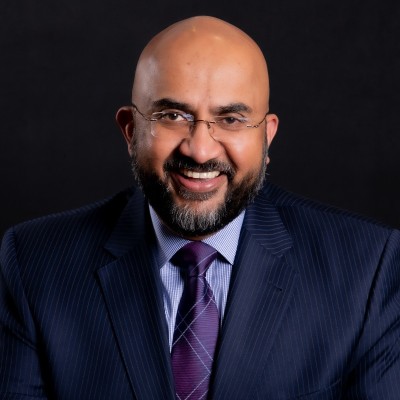Among the over two dozen panels at this year’s Financial Services Institute (FSI) OneVoice conference, WSR’s CEO Larry Roth participated in a panel titled “Beyond Retirement: Life After Wealth Management,” alongside moderator Sheena Gray, CEO of the Association of African American Financial Advisors; Gary Baker, President of Undivided Wealth; and Drew Hirschler, Business Consultant at AssetMark.
Hirschler pointed out that there are now six buyers for each seller and 26% of advisors are unsure of their succession plan, with only a small number having a written plan. Yet 37% of advisors are expected to retire within the next decade. Emotional and psychological aspects of retirement are causing advisors to put off succession planning because, they say, “that is their identity.”
Baker said that because there is no mandatory retirement age for advisors, the industry is lacking structure around retirement. As a result, advisors are continuing on payroll without working full time, diminishing resources that could be deployed elsewhere and reducing productivity.
Looking to solutions, Roth said some broker-dealers are doing well in offering optionality for advisors near retirement while also “giving a push” to help complete the deal, noting that Kestra has been very successful in this regard.

Baker presented a model his firm used successfully on multiple occasions to open advisors to new perspectives about retirement, saying, “If something better on the other side is known, the advisor can get there.” He focuses advisors on five areas of value – financial, intellectual, relational, personal, and spiritual or purpose – with the goal of demonstrating that life after retirement is greater than before. In his experience, if an advisor can see the “greater than” in at least four of the five areas of value, they will make the move towards retirement.
Roth added that once the advisor gets to a point of knowing that the next generation, their personal values and their clients will be cared for after retirement, it leaves advisors asking, “What am I supposed to do?”
Following on Roth’s question, Hirschler said that some advisors take roles at their firms leading philanthropy or charity initiatives, and some are called in to help the firm with challenges in which they have special skills and acumen. He cautions that firms must go slowly in these conversations because an advisor’s responses may surprise you.
Roth added that with retiring advisors often in lucrative financial situations, they may ask for high multiples, such as three times revenue, to exit the business. This can conflict with a younger generation of advisors who are more risk averse than the prior generation.
Industry Perspectives On Applying AI
Todd Cooper, Chief Revenue Officer at TIFIN AG, hosted a panel titled “Industry Perspectives On Applying AI” with Mike Zebrowski, Chief Operating Officer at Docupace Technologies; Joseph Kuo, CEO and Founder of Haven Tower Group; RP Sandilya, Senior Vice President at Broadridge Financial Solutions; and Tina Hollinger, FVP Product Manager at Axos Clearing.

Cooper began the session asking the panel how to cut through the “noise in AI, to get to the signal.”
Zebrowski responded that agentic AI, which can act autonomously, will take a much broader role in wealth management.
Kuo agreed, adding that agentic AI will make small- and mid-sized companies more competitive in recruiting because the advantage of scale larger firms have in repetitive tasks will be reduced.
On the question of guidance for firms implementing AI, Zebrowski mentioned the problem of data leakage, in which data from within a firm is released to an external AI. For a solution, he gave an example of using an enterprise version of AI that maintains data within it.
Sandilya responded that in implementing AI firms must focus on their people, build AI as a platform, and build collaboration across the firm so that the same AI is used across its tools and products.
Hollinger gave an example of how AI can be used for software, pointing to “legacy systems that have lots of useful tools, but no documentation.” AI can be tasked to interpret old code to apply the legacy systems in a new environment.
Cooper then asked the panelists how to prepare an organization and its end clients for AI changes.
“Bring together the members of the C-suite who have the most to win or lose,” replied Kuo, specifically mentioning the heads of operations, compliance, marketing and revenue. Kuo explained that they must define their KPIs and expectations, then develop communications for both internal employees and the field force – communications which must avoid the extremes of both hype and fear.
“Only 30% of the firms invested in AI feel comfortable with the governance they have in place,” said Hollinger, emphasizing that firms must establish standards and processes around AI use.
Responding to the question of how to measure success, Kuo quoted economist Paul Krugman as saying, “You’re always subject to the tyranny of math.” Kuo reiterated the importance of KPIs, and added that when technology frees time for advisors, there must be tracking of how the time is used.
Sandilya offered various metrics that can be used to measure success with AI, including how quickly staff are capable of creating new ideas, what or who advisors are engaging with, how long advisors are engaging, and how often staff are engaging with data.
Julius Buchanan, Editor in Chief at Wealth Solutions Report, can be reached at julius.buchanan@wealthsolutionsreport.com.













